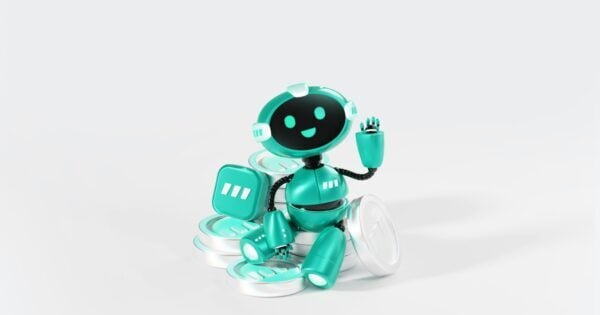A well-funded behavioral researcher once spared no expense to create a perfect environment for rats. No, this wasn’t a PETA scheme gone wild; it was an important study that could pay off handsomely if life was as simple as research.
The beginning of the story is well known. You take a rat and put him in a cage, give him the choice between drinking life-sustaining sugar water and water that is laced with drugs like cocaine or heroin. Many of the rats will choose the drugs and use them to the extent that they will starve themselves to death.
Those results are often cited. They’re told in every high school as a cautionary tale to discourage kids from using drugs. It’s only part of the story, though. Bruce Alexander wanted to know more.
Dr Alexander looked at the cages where researchers were conducting their experiments and said, that’s no place for a rat. Imagine yourself shut up in a wire cage with nothing to do and no one to do it with. Wouldn’t you use drugs then, if only to pass the time? What would happen if the rats were living in rat heaven? Would they still use drugs and kill themselves, doing so? He created Rat Park to find that out.
First of all, the individual cages had to go. Rats are social creatures. They need room to play and explore. Get some trees, grass, and line the floor with woodchips so they can make nests. Keep the cats away. Scatter some cans and boxes for them to hide in. Now give them the choice to use drugs.
The rats weren’t interested. Who needs drugs when you’ve got wood chips.
OK, so next, they got some other rats addicted by the previous method, in the stark, isolation chambers, and then set them free in Rat Park. They’re gunna need rehab, right? They’re not going to be able to stop on their own without methadone or a rat’s version of a twelve-step program.
Not so, those rats weren’t any more interested in the drug-laced water than the others were once they became residents of Rat Park.
Some say that Alexander’s study demolishes most of the assumptions of drug addiction theory.
Rat Park suggests that the desire to use drugs is, indeed, super powerful if you are isolated, alienated, with nothing to do and nowhere to go. If you’re living like a rat in a cage you’ll be inclined to use drugs and probably use those drugs to such an extent that you’ll neglect your basic needs till you die. However, it suggests, if you are in a safe place, around supportive people you love, given the opportunity for meaningful work and creative play, then drugs aren’t going to be that interesting.
If you look at what we do to drug addicted people, limit their options and put them in cages when they violate possession laws, you’d say that we make the problem worse. If you look at the way many rehab programs are run, like impersonal boot camps, you’d say we make the problem worse. If you look at the way employers, schools, friends, and family treat the addicted person, like a pariah who you can’t trust, you’d say we make the problem worse. This is madness, you’d say.
I agree we make the problem worse that way, but I don’t think recovery from addiction is as simple as Rat Park suggests.
You see, humans are not rats. Take your typical human and put him in a secure environment with plenty of food and companionship, give him something pleasant to do, tell him that he is loved, that he is forgiven, that he’s the greatest thing since sliced bread. Will he be happy? Maybe for about a week. Then he’ll find something to be miserable about.
The truth of the matter is that not all of our drug addicts come from the inner city or depressed rural areas, both places worse than even a rat’s worse nightmare; many come from the comfortable suburbs, from loving families, enjoying every privilege, and anticipating the fulfillment of every dream. There may not be much addiction in Rat Park, but there is much in Human Park. It doesn’t make much sense, but that’s why we call it being cranky.
Why Do You Get So Cranky?
It’s one thing to be unhappy when things don’t go your way. But, if you’re human, sometimes you can’t find the good in anything. You seem to love to find something to complain about.
We could call this feeling being grouchy, grumpy, critical, crabby, miserable, mean, ornery, bad-tempered, negative, perverse, depressed, or cantankerous; but I’m not happy with any of those words. Oh, all right; let’s just call it cranky.
Another way to think about it, is like this. You know what it means to wear rose colored glasses? Well, some people figuratively wear shit colored glasses, so everything looks like shit.
If you ever want to know what it feels like to be cranky, just go without sleeping or eating longer than you should and then interact with people who are acting kind, considerate, and scintillating. You won’t be able to tolerate those people. You’ll treat them like crap. That’s the feeling, but that’s not really what I’m talking about; because, in that case, you’re in need of sleep or food. I’m talking about when nothing is wrong, but you’re unhappy, anyway.
This condition, which has no good name, but what we’ll call cranky, bedevils behavioral science researchers, who tend to assume people will act rationally. I don’t know why they would assume that; look around and you can see plenty of folks acting against their own apparent best interest, but that’s what they assume. Consequently, their theories of human behavior just don’t work in the real world.
Take the designer of Rat Park, for instance. He spared no expense to create a perfect environment for rats, and then tried to get those rats addicted to drugs like cocaine and heroin. The rats had no interest in substances that could destroy them when they were living in rat heaven. Fine, but then the researcher tries to say that, if you, a human, are in a safe place, around supportive people you love, and given the opportunity for meaningful work and creative play, then you wouldn’t get addicted to drugs.
The problem is, humans are not rats. Humans are cranky.
Think about it. Not all our drug addicts come from the inner city or depressed rural areas, both places worse than even a rat’s worse nightmare; many come from the comfortable suburbs, from loving families, enjoying every privilege, and anticipating the fulfillment of every dream. There may not be much crankiness in Rat Park, but there is much in Human Park. It doesn’t make much sense, but crankiness doesn’t have to make sense. Making no sense is a distinguishing characteristic of being cranky.
What is this perverse tendency to be cranky? Do we like it better than happiness?
Some will tell you that when you are being cranky, you have no choice. You’re really just depressed. That is, you have a chemical imbalance in the brain that causes you to look on the dark side of everything. It’s not really your fault, but you can correct the problem and re-balance those chemicals by taking these other chemicals.
I’m not opposed to people taking those pills, called anti-depressants, if they help, and often they really do help. They can save lives; for crankiness, when it goes untreated, can be a terminal illness. But, when an anti-depressant works for you, it doesn’t necessarily mean you have depression, that chemical imbalance I was talking about. In fact, no scientist has even been able to find this chemical imbalance. Chemical imbalance is a myth.
So, if chemical imbalance is not the root of crankiness, what is? Of course, the first thing to consider is whether you’re tired or hungry, like I was saying earlier. There are other things that can make you cranky. It can be helpful to look at what I’ve called your dashboard to account for them all. But, if you’ve taken stock and still can’t find the origin of your crankiness, what then? What can cause crankosity when nothing causes it?
This is where Dostoyevsky comes in for me. You see, literature can often explain things science cannot. In Notes from the Underground he says:
Shower upon him every earthly blessing, drown him in a sea of happiness, so that nothing but bubbles of bliss can be seen on the surface; give him economic prosperity, such that he should have nothing else to do but sleep, eat cakes and busy himself with the continuation of his species. And even then out of sheer ingratitude, sheer spite, man would play you some nasty trick… simply in order to prove to himself — as though that were necessary — that men still are men and not the keys of a piano.
You’re not a piano key; that is to say, an object that can be manipulated. You have a will of your own. It is the preservation of freedom of choice that, at times, is more important than your happiness and well-being.
One’s own free unfettered choice, one’s own caprice, however wild it may be, one’s own fancy worked up at times to frenzy — is that very “most advantageous advantage” which we have overlooked, which comes under no classification and against which all systems and theories are continually being shattered to atoms… What man wants is simply independent choice, whatever that independence may cost and wherever it may lead.
Of course, this very stupid thing, this caprice of ours, may be in reality, gentlemen, more advantageous for us than anything else on earth, especially in certain cases… for in any circumstances it preserves for us what is most precious and most important — that is, our personality, our individuality.
So, there you have it. You may not be happy with this explanation, but nothing can make you happy anyway if you’re cranky. Crankiness can be how you exercise your freedom of choice, how you express your individuality, and how you keep yourself from being manipulated. Crankiness gives you an advantage over those who would treat you like a piano key, expecting you to sound a particular note whenever they want you to. It makes you unpredictable. It puts them on notice.
There’s just one thing I wonder about. The next time you’re feeling cranky for no good reason, try finding something, anything to be grateful for, despite being cranky. Wouldn’t that be a marvelous way to exercise your caprice?
Keith R Wilson is a mental health counselor in private practice and the author of three self-help books, three novels, and innumerable articles.
—
This post was previously published on medium.com.
***

All Premium Members get to view The Good Men Project with NO ADS. Need more info? A complete list of benefits is here.
 Compliments Men Want to Hear More Often
Compliments Men Want to Hear More Often  Relationships Aren’t Easy, But They’re Worth It
Relationships Aren’t Easy, But They’re Worth It  The One Thing Men Want More Than Sex
The One Thing Men Want More Than Sex  ..A Man’s Kiss Tells You Everything
..A Man’s Kiss Tells You Everything —–
Photo credit: Kalyan Sak on Unsplash
The post Humans Are Not Rats appeared first on The Good Men Project.
Original Article










